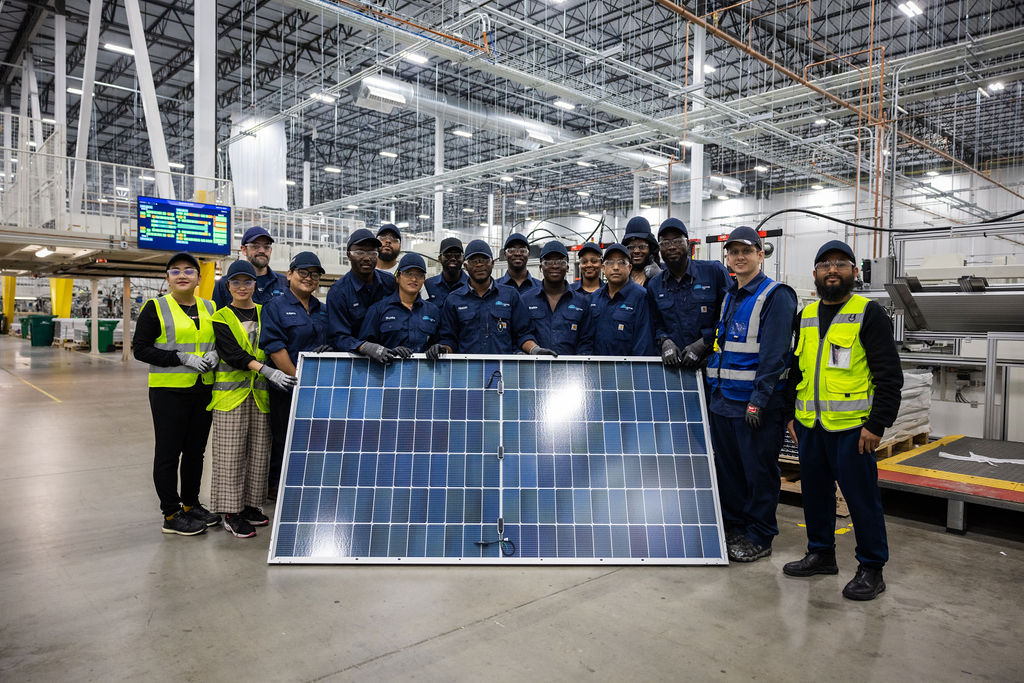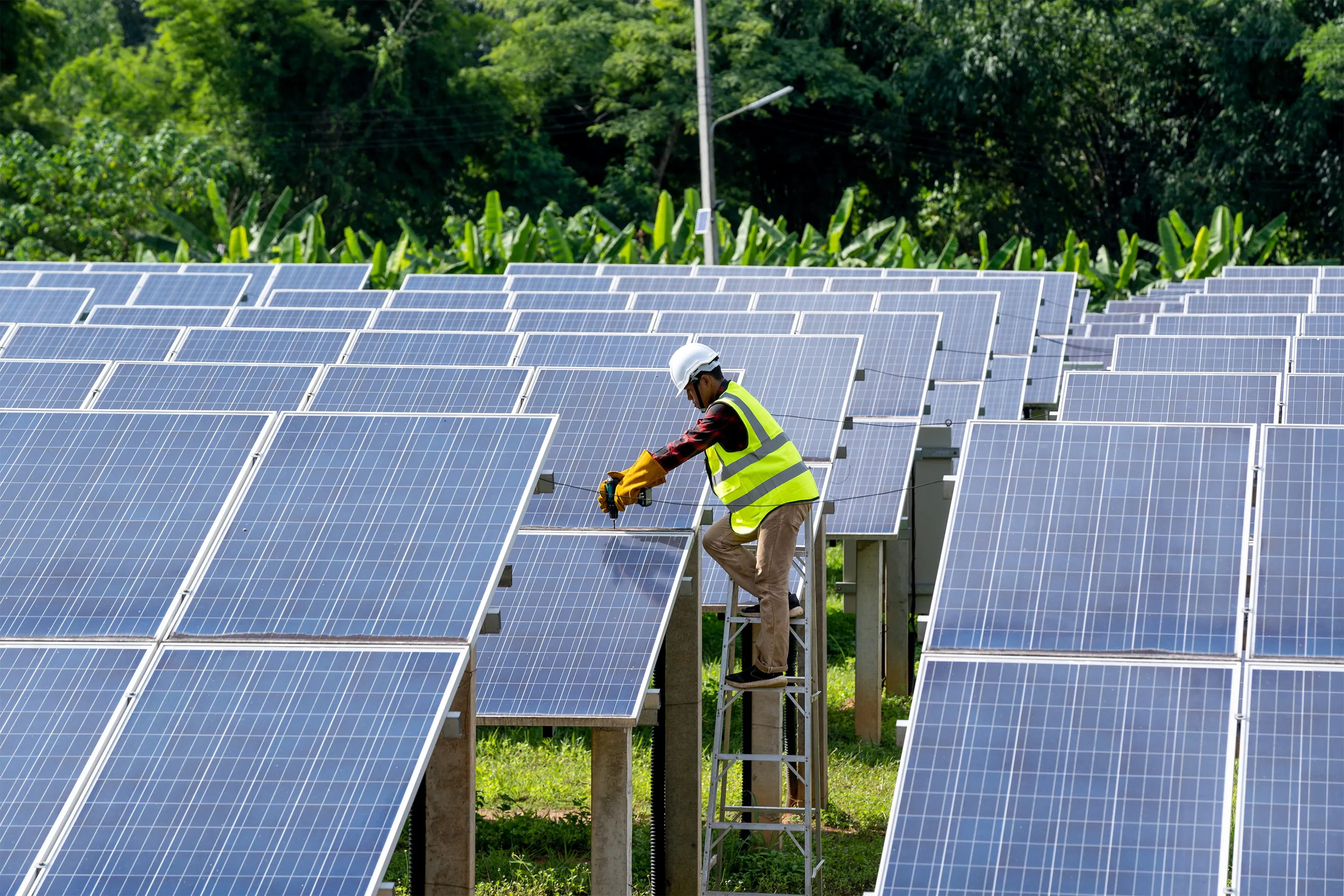Top Rated Solar Installers Pa - The Facts
Top Rated Solar Installers Pa - The Facts
Blog Article
Solar Panel Efficiency PA: Our Firm Focuses On The Installation And Management Of Photovoltaic Energy Systems
History and Advancement of Photovoltaic Panel Business
The beginning of solar panel companies can be traced back to the 1800s when Alexandre Edmond Becquerel discovered the photovoltaic result. Would he have thought of how his discovery would transform the way we harness energy?
Early Beginnings

In 1954, Bell Labs established the very first practical solar battery. This marked a considerable turning point in the history of solar power. They were at first utilized to power area satellites, however who knew this was simply the start?
Development and Growth
- In the 1970s, an energy crisis resulted in increased interest in eco-friendly energy sources, including solar power.
- By the 1990s, developments in technology and increasing ecological awareness resulted in the growth of solar panel companies worldwide.
A New Age
As we went into the 21st century, the solar market experienced a rapid growth. The need for clean and renewable resource brought about a brand-new age in the solar panel industry.
Remarkable Facts
- The world's very first solar power station was built in 1982 in Hisperia, California.
- By 2019, solar energy had actually become the world's fastest-growing source of power.
The journey of solar panel business has been amazing, hasn't it? The future holds immense potential, with constant advancements paving the way for a sustainable future. Can we picture a world powered completely by solar energy?
Moving on
Today, photovoltaic panel companies continue to innovate, pursuing more efficient and cost-efficient options. The development of solar power has actually come a long method, and yet, the journey has simply begun.
The Core of Photovoltaic Panel Production
Ever question what goes into creating those glossy, sun-loving photovoltaic panels? The process is as excellent as the end item (Affordable Solar Panels PA). High-purity silicon, the primary ingredient in solar panels, undergoes numerous transformations to guarantee its efficiency and resilience
From Sand to Silicon
Crystalline silicon, the backbone of the majority of photovoltaic panels, stems from basic sand. It's an interesting journey, isn't it? The sand goes through a high-temperature reaction with carbon to form silicon. This isn't simply any silicon. The silicon utilized in solar panels is "solar-grade," with a pureness of 99.9999%. It's this purity that allows the panels to effectively transform sunshine into power.
Ingot Formation
As soon as the silicon is pure enough, it's time to form ingots. Photo a large, round block of strong silicon. How is this achieved? Through a procedure called Czochralski procedure, where the silicon is melted and after that slowly recrystallized. It's a slow dance of science, resulting in a strong item that is almost as pure as the raw silicon itself.
Slicing into Wafers
The ingots are then sliced into wafer-thin pieces, like slicing a loaf of bread. Each slice is a possible solar cell, waiting to harness the power of the sun. Did you understand that the silicon wafers are just about 200 micrometers thick? That's about half the density of a human hair! The procedure needs precision and perseverance, but the outcome is a set of wafers prepared to be turned into solar batteries.
Producing Solar Cells
With the wafer all set, it's time for the magic to occur. The silicon wafer is 'doped' with other elements like phosphorous and boron to produce an internal electric field. It's this field that makes it possible for the conversion of sunshine into electrical energy. Complex, isn't it?
Assembly and Quality Control
Solar cells are like puzzle pieces that come together to form a solar panel. The cells are soldered together in a grid-like pattern, then covered with a protective layer of glass. The last action involves strenuous quality control checks. After all, it's vital that every solar panel carries out at its peak, would not you concur?
Expert Tip
Always keep in mind that even the most efficiently produced solar panel can lose effectiveness due to dirt and debris accumulation. Regular cleansing can substantially enhance your panels' efficiency.
Comprehending the Ecological Effect of Solar Panel Business
Ever considered the environmental footprint of a solar panel company? Green technology, such as solar, has transformed our energy landscape, however what about the behind-the-scenes impact?
The Manufacturing Process: A Double-Edged Sword
The manufacturing procedure for photovoltaic panels demands a considerable amount of energy. This procedure, known as 'em bodied energy', can be seen as a form of 'energy debt'. It's a little like obtaining today's sunlight to power tomorrow's energy needs. But worry not, the energy payback time is often much shorter than you 'd believe!
- The energy payback duration for photovoltaic panels is usually 1-4 years.
- After this period, the energy produced is essentially carbon-free.

Life After Decommission
And what takes place when a photovoltaic panel reaches the end of its life expectancy? Can it just be tossed into the trash? No, that wouldn't be extremely green, now, would it?
A practical service is recycling. While solar panel recycling is still in its infancy, it holds a world of potential. Recycling not only keeps materials out of landfills however also reduces the need for new basic materials.
Accountable Sourcing: More Than A Buzzword
Where does the silicon originated from, you ask? The industry's need for silicon and uncommon minerals can lead to destructive mining practices. Accountable sourcing is read more therefore vital to decrease harmful ecological effects.
Minimized Carbon Emissions: The Bigger Photo
Let's not forget the larger picture: solar energy significantly decreases carbon emissions. As soon as set up, photovoltaic panels produce clean, renewable resource, balancing out their preliminary manufacturing footprint.
In other copyright, the ecological effect of photovoltaic panel business is an intricate issue. Nevertheless, with responsible practices, the promise of a cleaner, greener future is well within our grasp.

Financial Performance and Market Share of Photovoltaic Panel Business
Ever questioned why some solar panel business - Solar Panel Installation Pennsylvania outshine others in the market? What sets them apart? The key lies in their monetary performance and market share
Financial Performance: An Important Indicator
Financial performance plays a pivotal function in the success of any service. For photovoltaic panel business, it's no different. Strong monetary efficiency makes it possible for these companies to invest in cutting-edge technology, research, and development, thus producing high-quality, effective photovoltaic panels.
But how do they accomplish this? With a concentrate on cost performance and strategic financial investments. Companies that manage to decrease production expenses without compromising on quality tend to fare much better in the market.
Market Share: A Measure of Success
Market share, on the other hand, is a direct reflection of a company's popularity amongst customers. A high market share indicates more property owners are choosing their solar panels over competitors.
What's the secret dish for gaining a bigger market share? It comes down to consumer satisfaction and brand reputation. Companies that prioritize client requirements and preserve a positive brand image are more likely to record a larger share of the marketplace.
- Consumer Complete satisfaction: Photovoltaic panel business that deliver reliable products and remarkable consumer service tend to have greater consumer satisfaction rates.
- Brand name Credibility: A strong brand reputation is developed in time through constant shipment of quality products and services.
Financial Efficiency and Market Share: The Cooperative Relationship
Remarkably, the relationship in between financial efficiency and market share is not one-sided. They feed off each other. A strong monetary performance can increase a business's market share, while a high market share can improve financial performance.
As a solar panel business, balancing these 2 elements is crucial for long-lasting success. A business that disregards either of them might discover it tough to keep its position in the competitive solar industry.
The Takeaway
What does all this mean for you? Whether you're a property owner looking to set up solar panels or an investor eyeing the solar industry, comprehending the financial performance and market share of solar panel companies is essential. They are key signs of a company's health and potential for future development.
Report this page